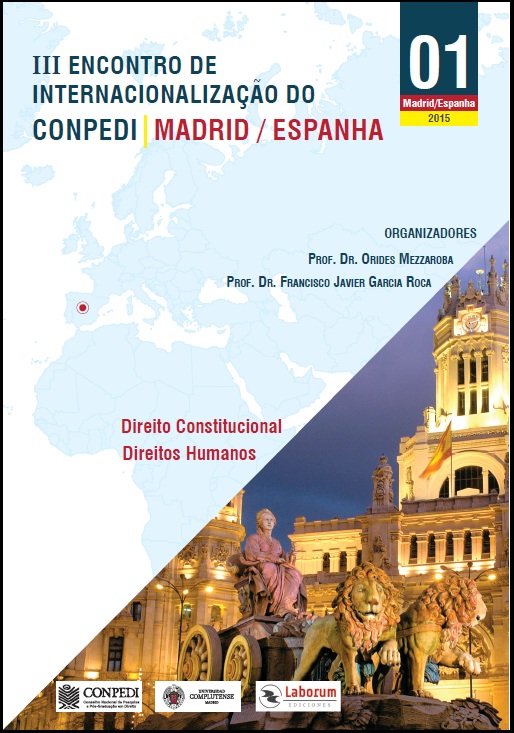Citizenship and Combating Corruption Proposals Extrapenais of Brazilian Legal System Improvement
Main Article Content
Abstract
Corruption is one of the serious Brazilian problems. The embezzlement of public funds prevents the realization of fundamental social rights and delays national develop- ment prevent inhibiting the real access to citizenship. Brazil needs to face the paradox of being the eighth world’s largest economy, and having low human development indexes. Social justice does not coexist with impunity. Public funds, paid by taxpayers, sidetracked by corruption schemes, fail to reach the investments in the enlargement of public health, education, security and infrastructure. Moreover, the opportunity of corruption increases corruption when there is impunity. To reduce corruption levels in Brazil, it is urgent to think about legal system improvement alternatives, a task which is also entrusted to the academy. Although positive law does not change social reality, the lack of appropriate legal mechanisms prevents the equating of part of the Brazilian’s society problems, such as corruption. In the extrapenal sphere, beginning with constitutional law, it is important to emphasize the need to improve issues such as the strengthening of internal and external controls, reforming constitutional institutions, such as the Courts of Auditors. In addi- tion, the enlargement of transparency and social control of the prosecution performance in infra constitutional sphere requires fundamental legislative reforms, in order to provide for the realization of the human rights enshrined in the 1988 Constitution.
Downloads
Article Details
Autores que publicam nesta revista concordam com os seguintes termos:
O(s) autor(es) autoriza(m) a publicação do texto na da revista;
O(s) autor(es) garantem que a contribuição é original e inédita e que não está em processo de avaliação em outra(s) revista(s);
A revista não se responsabiliza pelas opiniões, idéias e conceitos emitidos nos textos, por serem de inteira responsabilidade de seu(s) autor(es);
É reservado aos editores o direito de proceder a ajustes textuais e de adequação às normas da publicação.
Autores mantém os direitos autorais e concedem à revista o direito de primeira publicação, com o trabalho simultaneamente licenciado sob a Licença Creative Commons Attribution que permite o compartilhamento do trabalho com reconhecimento da autoria e publicação inicial nesta revista.
Autores têm autorização para assumir contratos adicionais separadamente, para distribuição não-exclusiva da versão do trabalho publicada nesta revista (ex.: publicar em repositório institucional ou como capítulo de livro), com reconhecimento de autoria e publicação inicial nesta revista.
Autores têm permissão e são estimulados a publicar e distribuir seu trabalho online (ex.: em repositórios institucionais ou na sua página pessoal) a qualquer ponto antes ou durante o processo editorial, já que isso pode gerar alterações produtivas, bem como aumentar o impacto e a citação do trabalho publicado (Veja O Efeito do Acesso Livre) emhttp://opcit.eprints.org/oacitation-biblio.html
References
BAUMAN, Zymunt. Modernidade líquida. Tradução de Plinio Dentzien. Rio de Janeiro: Zahar, 2001.
CAMBI, Eduardo. A corrupção que atrasa o país. Jornal Gazeta do Povo, Curitiba, 05/12/2013.
______. Todos contra a corrupção. Jornal Gazeta do Povo, Curitiba, 08.12.2014.
______. A atuação do Ministério Público no combate à corrupção na Lei 12.846/2013. Revista do Conselho Nacional do Ministério Público, nº 4, 2014.
CAMBI, Eduardo; GUARAGNI, Fábio. Lei anticorrupção. Comentários à Lei 12.846/2013. São Paulo: Almedina, 2014.
CAMBI, Eduardo; FERREIRA, Hwidger Lourenço. Exclusão social e cidadania: participação social e educação como empoderamento do cidadão e fortalecimento da democracia. Revista Judiciária do Paraná, vol. 9, maio/2015.
DEMO, Pedro. Charme da exclusão social. Campinas: Autores associados, 2002.
FILGUEIRAS, Fernando. Transparência e controle da corrupção no Brasil. In: Corrupção e sistema político no Brasil. Coord. Leonardo Avritzer e Fernando Filgueiras. Rio de Janeiro: Civilização brasileira, 2011.
GHIZZO NETO, Affonso. Corrupção, Estado Democrático de Direito e Educação. Rio de Janeiro: Lumen Juris, 2012.
PAES, Bárbara; BALBINO, Fernanda; MARCHEZINI, Joana. Monitoramento da Lei de Acesso à Informação em 2014. São Paulo: Article 19, 2015.
PAIVA, Natália; SAKAI, Juliana. Quem são os conselheiros dos Tribunais de Contas. Disponível em: http: http://www.excelencias.org.br/docs/tribunais_de_contas.pdf.
Acesso em 28 de maio de 2015.
SPECK, Bruno. Tribunais de Contas. In: Corrupção: ensaios e críticas. Coord. Leonardo Avritzer. Belo Horizonte: Editora UFMG, 2012.
ZANCARO, Antonio Frederico. A corrupção político-administrativa no Brasil. São Paulo: Acadêmica, 1994.





